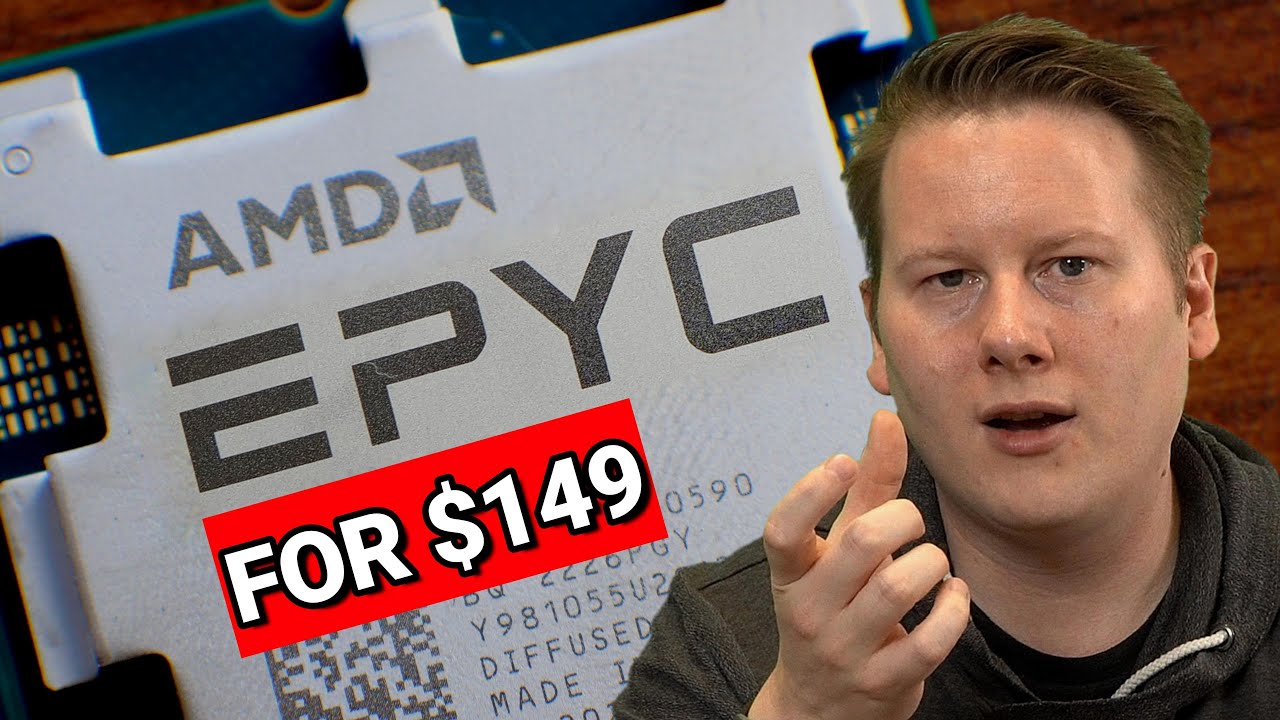Not really. It’s just a normal Zen 4 CPU with some server features like ECC memory support.
The biggest downfall of these chips is they have the same 28 PCI-E lanes as any consumer grade Zen 4 CPU. Quite the difference between that and the cheapest EPYC CPUs outside the 4000 series.
You’re going to run in to some serious I/O shortages if trying to fit a 10gbe card, an HBA card for storage, and a graphics card or two and some NVME drives.
Not really. It’s just a normal Zen 4 CPU with some server features like ECC memory support.
I’m pretty sure all the Zen CPUs have supported ECC memory, ever since the first generation of them.
A lot of the Zen based APUs don’t support ECC. The next thing is if it supports registered or unregistered modules - everything up to threadripper is unregistered (though I think some of the pro parts are registered), Epycs are registered.
That makes a huge difference in how much RAM you can add, and how much you pay for it.
Agreed the PCI layout is bad. My problem is the x16 slot.
I would prefer 8 slots/onboard with PCIe5 x2 from CPU. From the chipset 2 slots of PCIe4 x2. This would probably adequate IO. Aiming for 2x25 Gbits performance.
This is really nice for home servers. There has been a huge gap for years where the choice was a 16-64 core high watt monstrosity or use a 4 year old server CPU before every server went to high core counts.
8cores with ecc is perfect for my home use.
I’m curious, what do you or anorher “classic”(?) home user do that needs more than like an old intel 6500 with say 32GB RAM and some 1 TB SSD (hoarding etc goes to the NAS right?) of storage?
I know dockers consume, or so I have heard, but even a webserver, streaming etc is that really eating up the (pcie)bandwith?
I’m just a low end tinkerer who likes to buy over specced stuff so I wonder what’s you all doing with yours I guess!
Here is an alternative Piped link(s):
https://piped.video/watch?v=zTFq-9K7JZE
Piped is a privacy-respecting open-source alternative frontend to YouTube.
I’m open-source; check me out at GitHub.
Threadripper already accomplished all of this years ago. My TR2970WX has 24 cores/48 threads, 48 PCI-E lanes, and it supports ECC and non-ECC RAM. My AsRock Rack board has BMC support as well.
The Threadripper series was the perfect workstation CPU. I’ve had mine for a few years and it can handle anything I throw at it, it can easily transcode 2-3 4K videos while doing multiple other things.
It wasn’t cheap though, it was like $650 on sale, originally like a grand or so.
Acronyms, initialisms, abbreviations, contractions, and other phrases which expand to something larger, that I’ve seen in this thread:
Fewer Letters More Letters NAS Network-Attached Storage Plex Brand of media server package SSD Solid State Drive mass storage
3 acronyms in this thread; the most compressed thread commented on today has 14 acronyms.
[Thread #757 for this sub, first seen 21st May 2024, 22:45] [FAQ] [Full list] [Contact] [Source code]






